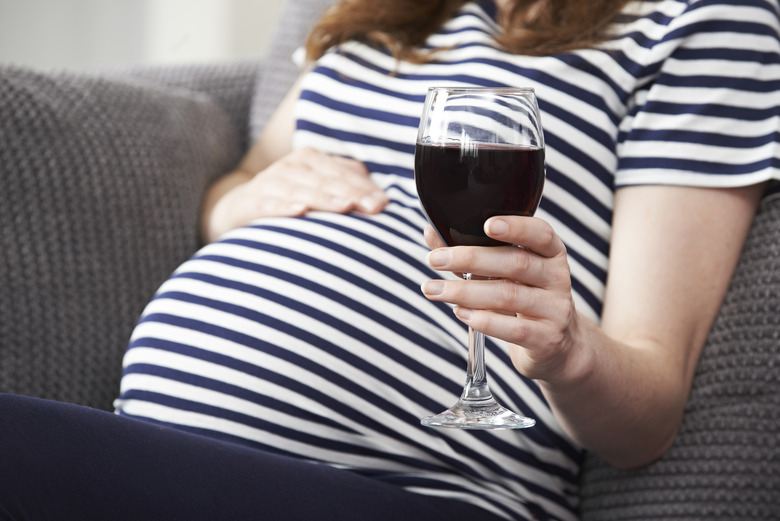10 Percent Of Pregnant Women Drink Anyway (And That Might Be OK)
According to a 2015 report conducted by the Centers for Disease Control and Prevention, 1 in 10 women reportedly drink alcohol while they're pregnant, regardless of countless warnings and ads recommending against it. But there is little to no evidence that moderate drinking during pregnancy is actually harmful — researchers are now calling for additional studies to confirm whether or not this consumption is okay.
The warnings against alcohol consumption are derived from the widespread opinion that alcohol damages the growing fetus, resulting in debilitating effects on the child's neural, behavioral, and physical development. There is an excess of proof that alcohol abuse can cause these damages, including the devastating fetal alcohol syndrome. However, there has yet to be conclusive evidence that alcohol in moderate doses has any effect.
Women often assume this fact regardless, asking their doctors questions like, "One glass is okay, right?"
Scotland's National Health Service Greater Glasgow and Clyde recently noticed this dilemma and released a report calling for more research on the touchy subject.
"Women get their information from various places, not just their doctor or midwife," said Dr. Linda de Caestecker, NHSGGC's director of public health. "And this means they often get mixed messages. The aim of this campaign is to set the record straight."
The amount of research conducted on the subject is shockingly slim. A paper released by the journal BMJ Open conducted a systematic review of existing research on moderate alcohol consumption and pregnancy. Of the thousands of studies found, only 24 of them met the researchers' criteria for finding legitimate results.
Of the studies that applied to moderate drinking during pregnancy, none constituted sufficient evidence that having a couple of drinks did any harm — the report "found limited evidence for a causal role of light drinking in pregnancy, compared with abstaining, on most of the outcomes examined." Nevertheless, because there is some evidence linking moderate consumption with low birth weights and preterm delivery, the researchers suggested that doctors "could advise abstention as a precautionary principle but should explain the paucity of evidence."
In other words, the lack of evidence doesn't mean the drinks are harmless — we just don't know yet for sure.
What we do know is that you shouldn't panic if you have a glass of wine or two in a moment of weakness. But the coast isn't entirely clear; you should still practice caution and avoid alcohol to reduce your baby's risk. In addition to alcohol, here are 10 more foods pregnant women shouldn't eat.
